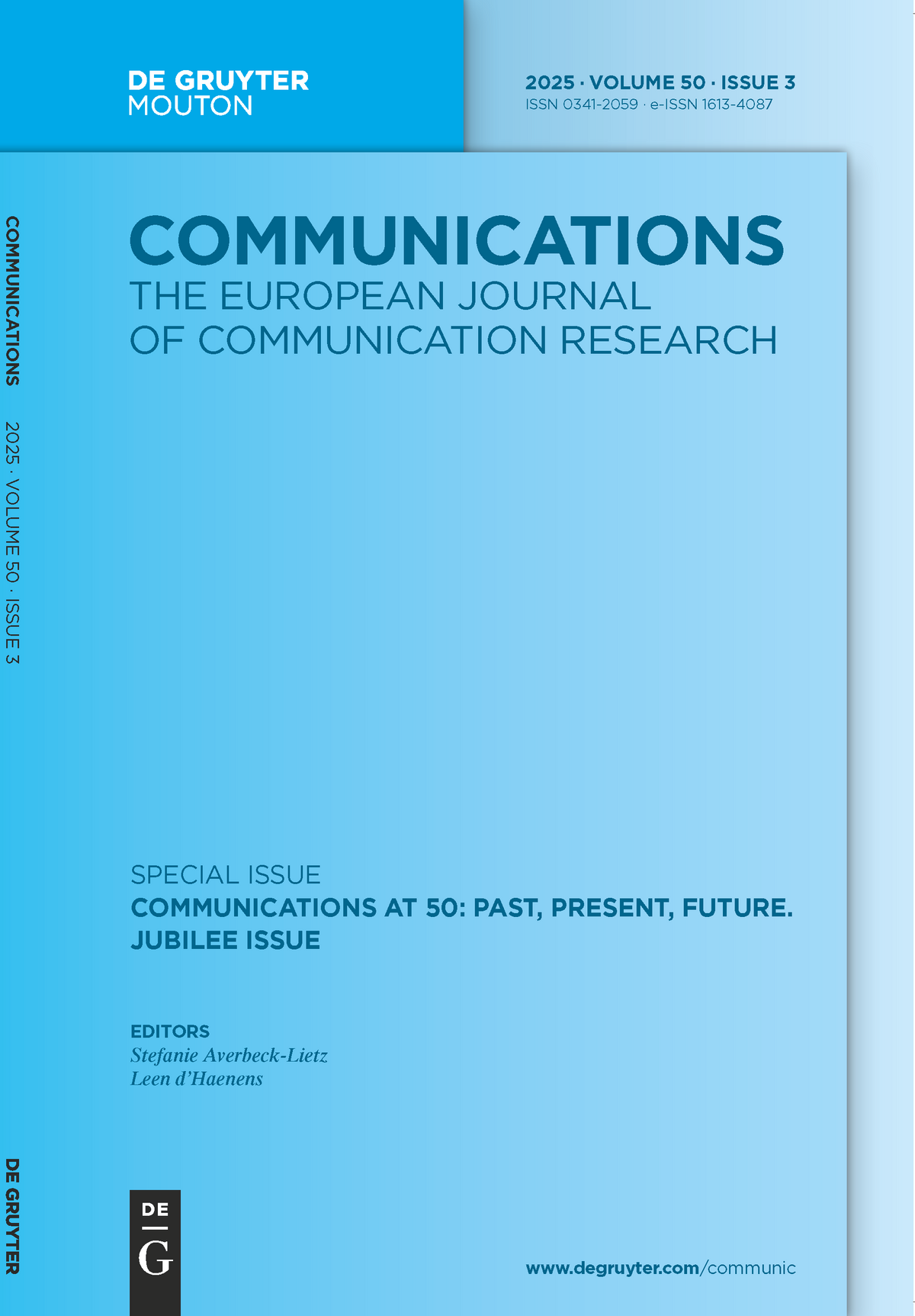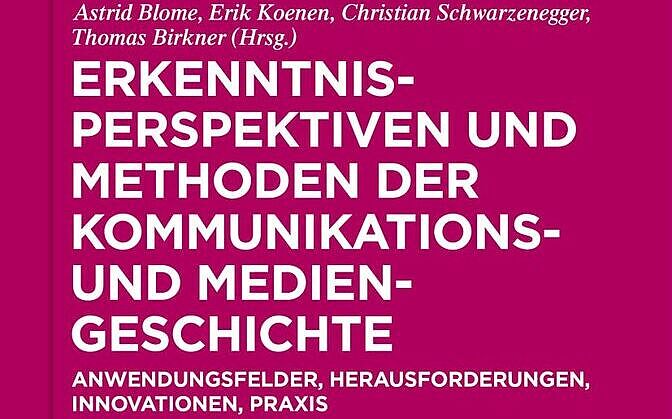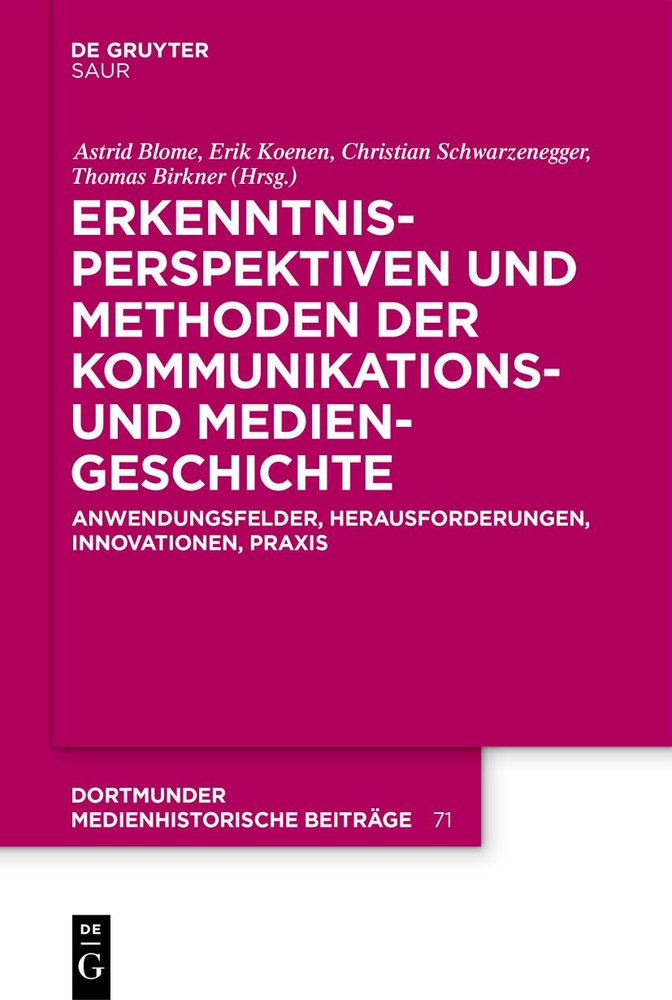Chair of Communication Studies with a Focus on Communication Ethics
Teaching and research at the Chair of Communication Studies with a Focus on Communication Ethics is carried out in close collaboration with the other professorial chairs at the Department (Communication Studies and Organisational Communication).
Communication ethics issues are related to general communication studies and its theory and are relevant, for example, in media systems research and (media) organisational research.
In terms of content, teaching and research focuses on communication ethics during times of media transition. This includes a communication-historical look into the long-term change in the public sphere and media systems, as well as a look into the content of media communication and its quality, professional and mediating roles (in journalism, PR, advertising, journalism, blogging, influencing, etc.), rules (norms and underlying values) and the regulation of public communication (self- and co-regulation of the media).
The historical-systematic perspective helps us to understand why we can and should base public communication on certain values. Like freedom of communication, these have developed under certain social, economic and political circumstances and help determine the "control and reflection function" (B. Debatin) that communication and media ethics perform in society.
Inter-/transnational perspectives complement this orientation. The chair focuses its activities on Germany, France and Great Britain, as well as some references to research in Latin America. The approach is often comparative.
Teaching combines the theory of communication ethics with skills required for practical communication. This not only affects students' own communicative and media-related actions, and consequently their communication and media skills, but also provides them with skills for future careers in journalism, PR and other fields such as organisational communication, media regulation, or media education, as well as applied media and communication research.
Theories of media communication are equally important to our teaching and research as those of interpersonal communication. Interpersonal communication is central to the teaching of attitudes, opinions and values, even in a mediatised society. In both private and public communication, interpersonal communication no longer primarily takes place in a shared place and/or at the same time, but increasingly by means of social media and digital communication tools that delimit the relationships between time and space.
Questions of digital communication and media ethics, including AI ethics, pose new challenges for teaching and research and are addressed in teaching and research.
The research profile of the professorial chair is characterised by its bringing together of foci on communication ethics, communication theory and communication history on the basis of primarily qualitative communication research (individual research projects include standardised, e.g. content-analytical or survey-based procedures). Issues approached by intercultural and transcultural communication research are also combined with questions related to communication ethics.
The research projects as well as doctoral and habilitation projects bring together various fields of communication studies. They are linked by normative, competence-orientated perspectives and the question of the quality criteria of publicly relevant communication.
Research projects
bulletin board
Stefanie Averbeck-Lietz organisiert gemeinsam mit Kolleg:innen der Universitäten Leipzig und Leuwen (Belgien) sowie der Deutschen Gesellschaft für Kommunikationsforschung (DGKF) eine internationale Konferenz (Kopie 1)
zum 50. jährigen Bestehen der Fachzeitschrift 'Communications. The European Journal of Communication Research'. Sie ist seit 2016 Ko-Herausgeberin der SSCI-gerankten Zeitschrift. Zeitgleich erscheint ein Jubiläumssonderheft im Verlag de Gruyter Brill.
International Conference
European Communication Research: What, whence, and whither?
29 – 30 September 2025
Institute for Communication and Media Research, Nikolaistrasse 27-29, 04109 Leipzig
Aus dem vom Stefanie Averbeck-Lietz geleiteten DFG-Projekt zur Kommunikationsgeschichte des Völkerbundes (Laufzeit 2017-2022) ist ein weiterer Aufsatz des gesamten Teams erschienen: (Kopie 1)
S. Averbeck-Lietz/A.L. Gellrich/E. Koenen/G. Franke/M. Sachs: Herausforderungen u. Methodologie historischer Inhaltsanalysen: Codebuchentwicklung und Codierpraxis zur Berichterstattung über den Völkerbund im Vorwärts der 1920er Jahre. Ein Werkstattbericht
Current publications > 2025
Book Chapter
Stefanie Averbeck-Lietz/Arne L. Gellrich/Erik Koenen/Gina Franke/Miriam Sachs:
Herausforderungen und Methodologie historischer Inhaltsanalysen: Codebuchentwicklung und Codierpraxis zur Berichterstattung über den Völkerbund im Vorwärts der 1920er Jahre. Ein Werkstattbericht.
In: Astrid Blome/Erik Koenen/Christian Schwarzenegger und Thomas Birkner (Hrsg.): Erkenntnisperspektiven und Methoden der Kommunikations- und Mediengeschichte. Anwendungsfelder, Herausforderungen, Innovationen, Praxis.
Berlin: De Gruyter Saur 2025, S. 115-159 [mit publiziertem Codebuch].
Gebunden ISBN 9783111153087
eBook ISBN: 9783111153780
Über das Buch: Die in diesem Band versammelten Beiträge gehen auf eine gemeinsame Fachtagung des Instituts für Zeitungsforschung und der Fachgruppe Kommunikationsgeschichte der Deutschen Gesellschaft für Publizistik und Kommunikationswissenschaft (DGPuK) im April 2022 zurück. Rahmenthema waren Erkenntnisperspektiven und Methoden der Kommunikations- und Mediengeschichte und die damit verbundenen forschungspraktischen und theoretischen Anwendungsfelder, Herausforderungen und Innovationen. Die Beiträge zeigen, wie vielfältig die Möglichkeiten sind, in der Kommunikations- und Mediengeschichtsschreibung neue Wege zu gehen oder alte Wege mit neuen Mitteln zu beschreiten, und wie steinig diese neuen Wege mitunter sein können. Um sie besser und sicherer beschreiten zu können, ist der stete Austausch mit Kolleginnen und Kollegen unverzichtbar. Dieses Buch soll hierzu anregen und einen Beitrag leisten.



